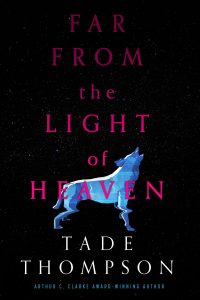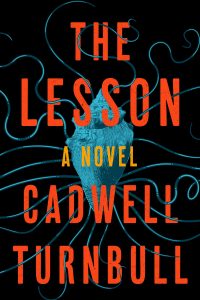Gary K. Wolfe reviews Connie Willis
 In her introduction to The Best of Connie Willis, Willis notes that ‘‘Writing an author’s introduction to a ‘Best of’ collection is kind of problematic,’’ and so she generously goes on to guide readers toward those works by other authors and editors which she feels helped shape her own work, from Heinlein to Shirley Jackson, Kit Reed, Philip K. Dick, Daniel Keyes, and even Ward Moore. This sort of generosity is a good part of what makes much of Willis’s fiction as appealing as her public persona, but the very idea of a ‘‘Best of’’ collection for a writer as well known for novels as for short fiction is problematic in other ways as well (even though I’m cheerfully guilty of having co-edited one such book just recently). I doubt that anyone other than an annoying teenage nitpicker would really ask whether a title like that is meant to imply that the novels aren’t among the author’s best work, and I suppose publishers may feel that ‘‘The Best Short Fiction of’’ is more unwieldy and less market-friendly, but there’s yet another way in which such collections are problematical: ‘‘best’’ according to whom? Authors who make their own selections may tend to want to bring attention to lesser-known or underappreciated tales (as with Le Guin’s recent two-volume collection) or to rather modestly favor older over more recent work (as Gene Wolfe did a few years ago). Any other editor, of course, is inevitably going to be guilty of leaving out someone else’s favorites or worse, of having some sort of agenda.
In her introduction to The Best of Connie Willis, Willis notes that ‘‘Writing an author’s introduction to a ‘Best of’ collection is kind of problematic,’’ and so she generously goes on to guide readers toward those works by other authors and editors which she feels helped shape her own work, from Heinlein to Shirley Jackson, Kit Reed, Philip K. Dick, Daniel Keyes, and even Ward Moore. This sort of generosity is a good part of what makes much of Willis’s fiction as appealing as her public persona, but the very idea of a ‘‘Best of’’ collection for a writer as well known for novels as for short fiction is problematic in other ways as well (even though I’m cheerfully guilty of having co-edited one such book just recently). I doubt that anyone other than an annoying teenage nitpicker would really ask whether a title like that is meant to imply that the novels aren’t among the author’s best work, and I suppose publishers may feel that ‘‘The Best Short Fiction of’’ is more unwieldy and less market-friendly, but there’s yet another way in which such collections are problematical: ‘‘best’’ according to whom? Authors who make their own selections may tend to want to bring attention to lesser-known or underappreciated tales (as with Le Guin’s recent two-volume collection) or to rather modestly favor older over more recent work (as Gene Wolfe did a few years ago). Any other editor, of course, is inevitably going to be guilty of leaving out someone else’s favorites or worse, of having some sort of agenda.
The principle of choice with The Best of Connie Willis, though, is straightforward: it simply includes all ten of her stories that won the Hugo, the Nebula, or both. So, arguably, these stories are the best by popular vote, either of SFWA or Worldcon members, and those of us who have somewhat quirkier favorites (I myself am partial to the academic satire of ‘‘In the Late Cretaceous’’ and the more touching ‘‘Schwarzschild Radius’’) will miss them. Conversely, those who had the foresight to buy Willis’s considerably larger 2007 collection The Winds of Marble Arch and Other Stories (now out of print) will find that all but three of the stories here were included in that book. In addition to those three stories, the present volume adds not only Willis’s introduction, but story notes and three recent speeches, the 2006 Worldcon Guest of Honor speech and two versions of the 2012 SFWA Grand Master speech. All of these speeches, interestingly, are set with the line spacings of poems, much like Churchill’s drafts of his wartime speeches (which seems highly appropriate, if that’s where Willis got the idea). And all, like many of the story notes, attest vividly to Willis’s abiding love of the field.
But for all that reciprocated love (more fiction Hugos and Nebulas than anyone else), Willis remains something of an anomaly. For one thing, while common knowledge claims that Hugo awards rarely recognize works of humor, Willis has achieved that five times in the last 20 years. In a field said to value quick payoffs and rapid action, she’ll demand patience by stretching a single suspense arc over dozens or even hundreds of pages, while raising digression to an art form worthy of the Victorians. In ‘‘All Seated on the Ground’’, mysteriously uncommunicative aliens land, but we don’t find out what they’re up to for another 60 pages, while Willis takes us on an unexpected tour of the darker side of Christmas songs, of all things. (This is also the story that most clearly echoes the witty, conversational tone of her famous speeches.) At a time when unreliable narrators were still a rarity in SF (except perhaps for Gene Wolfe), her dark, post-nuclear parable ‘‘A Letter from the Clearys’’ (1982) introduced a 14-year-old whose real agenda, though subtly revealed, grimly undermines the apparent sentimentality of the tale.
Sentimentality is something Willis has occasionally been taken to task for, and it’s true that she likes to end the screwball comedy aspects of her plots with romantic clinches (or at least hand-holding), as she does with ‘‘At the Rialto’’, ‘‘Inside Job’’, or ‘‘All Seated on the Ground’’. It could be argued that’s part of the form, but it’s seldom a simple unalloyed form in Willis. ‘‘Inside Job’’ frames its budding romance with a scalpel-like takedown of fake psychics worthy of Ricky Jay, as one of the psychics is unexpectedly possessed by the spirit of arch-skeptic H.L. Mencken. ‘‘At the Rialto’’ is simultaneously a dead-on parody of academic conventions and an ingenious deployment of quantum indeterminacy as a way of describing academic and personal politics. (She has a go at academic flim-flam of another sort in ‘‘The Soul Selects Her Own Society’’, in the form of a paper trying to prove that Emily Dickinson was visited by aliens.) ‘‘The Winds of Marble Arch’’ may read like an hilarious comedy of manners about trying to negotiate the London Tube with a group of finicky tourists, but it’s haunted by the smells of the Blitz, which somehow seem to have survived in the underground winds, while ‘‘Death on the Nile’’ begins with another group of obsessive tourists (Willis has a lot of fun with tourists), but gradually transforms itself into one of Willis’s rare horror stories, with a truly chilling ending.
One of the values of a collection like this isn’t just to revisit old favorites, but to find patterns we may have missed earlier. A common bromide about Willis’s work, which I know she gets asked about, is that of the funny Connie (as represented by several of the stories I’ve mentioned) versus the tragic Connie (as represented here by ‘‘A Letter from the Clearys’’, ‘‘Fire Watch’’, and ‘‘The Last of the Winnebagos’’). By looking at a much of her most popular work together, it becomes evident that the two aren’t really very far apart, and perhaps are inseparable; this in turn suggests a useful approach to her novels as well. Passage may be a long and deadly serious meditation on death, but the characters are comically exasperated by the indecipherable layout of the hospital. Blackout/All Clear may be a celebration of heroism and survival during the Blitz, but it has intractable Katzenjammer Kids in it. Exasperation, in fact, may be Willis’s trademark voice, but for all its comic payoffs, these tales suggest, it might be a path toward insight as well.








Apologies for this belated comment from this Long-Time Willis Reader, who just discovered this online review this morning while searching THE BOOK OF SAND that is the Interweb for something else. // Here’s a quick “Thank You!” note to Mr. Wolfe for his entertaining, insightful review of this outstanding collection by one of my favorite writers. // FWIW. the Overbooked Undersigned also shares his regard for “In The Late Cretaceous” and “Schwarzschild Radius.” // Sincerely, Michael D. Toman